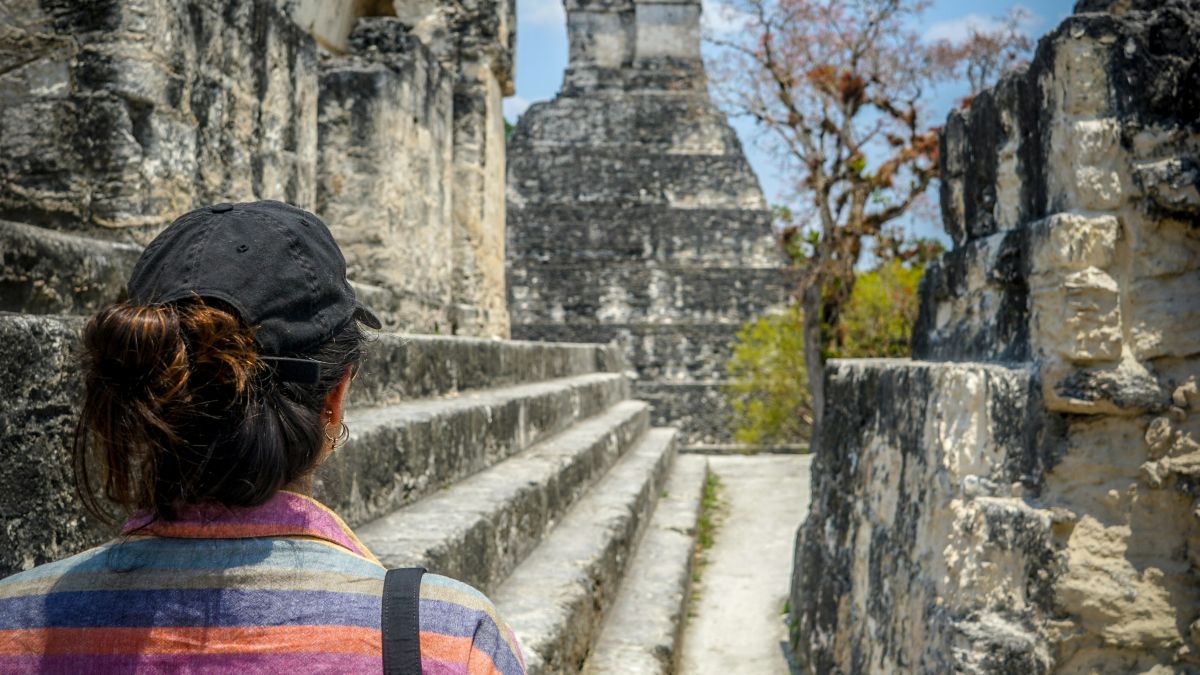Discover ten practical expat mental health tips for a fulfilling and happy life in Central America. Learn to navigate cultural challenges, build resilience, and maintain well-being in your new home abroad.
Living abroad is both exciting and challenging. The cultures, surroundings, and new opportunities often draw people to Costa Rica, Panama, Belize, or any of the other countries in Central America. However, the reality of life abroad isn’t always picture-perfect, and expat mental health is a crucial aspect that’s often overlooked.
Adapting to a new culture, language, and lifestyle can be stressful. Expats may face unique challenges such as cultural isolation, homesickness, and the pressure to portray a perpetually positive image of their new life. These factors can contribute to mental health issues that are sometimes difficult to address when far from familiar support systems.
This guide aims to shed light on the less-discussed aspects of expat life in Central America. We’ll explore common mental health challenges expats face, such as anxiety, depression, and adjustment disorders. More importantly, we’ll provide practical expat mental health tips and strategies to maintain wellbeing and build resilience in your new home.
Whether you’re a recent arrival or a long-term expat, prioritizing your mental well-being is essential for a fulfilling life abroad. Let’s look at the realities of expat life in Central America and discover how to navigate its unique mental health landscape.
Understanding the Expat Experience in Central America
Central America offers a diverse cultural landscape for foreign residents to navigate. While each country has its unique characteristics, expats often encounter similar adjustment challenges across the region.
The initial excitement of moving to a new country can sometimes overshadow the realities of daily life. Many expats find that their expectations don’t always match the reality of living in Central America. Common issues include navigating bureaucratic processes, adapting to a different pace of life, and overcoming language barriers.
Studies suggest that expats face a higher risk of mental health issues compared to those who never leave their home countries. Factors contributing to this increased risk include the stress of cultural adaptation, potential isolation from familiar support networks, and the pressure to succeed in a new environment.
Expat Mental Health
Nobody expects to experience mental health problems, and nobody can predict how you will cope with your new life, however resilient you think you may be.https://t.co/RKeLu6I7Tm#expat #expatlife #mentalhealth #podcast pic.twitter.com/oTOJ952Qwv— Expat Directory (@Expat_Directory) August 10, 2024
Ten Expat Mental Health Tips
Maintaining good mental health is crucial for a positive expat experience. Here are some effective expat mental health tips to help you navigate the challenges of living in Central America:
1. Learn the Local Language
Spanish is the primary language in most Central American countries. Learning Spanish can significantly improve your daily life and help you connect with local communities. Start with basic phrases and gradually build your skills. Many cities offer language schools or conversation exchange programs. Online platforms can supplement your learning.
In some areas, particularly in parts of Guatemala, indigenous languages are also spoken while Belize has its own unique Kriol language alongside English. While not essential, learning a few words in these languages can be a sign of respect and help you connect with local cultures.
If you’re serious about spending time in Central America, learning the language is essential. But in this world of online learning, is it still worthwhile finding a traditional Spanish language school or institute? https://t.co/BFWRwAbcJ9
— Central America Living (@VidaAmerica) August 18, 2023
2. Establish Routine Healthcare Visits
Finding reliable healthcare providers is an important step in maintaining your overall well-being. Research reputable clinics or hospitals in your area that cater to expats. Regular check-ups can help prevent health issues and provide peace of mind.
For mental health support, look for English-speaking therapists or counselors. Many now offer online sessions, which can be particularly helpful if you’re in a remote area. If online therapy works for you, it’s possible to find anxiety therapists in your home country and use them once you’re living abroad.
3. Build a Support Network
Creating a support network is one of the most vital expat mental health tips for you. Connect with both fellow expats and locals to build a diverse community. Expat groups on social media platforms like Facebook can be a good starting point. Many cities also have InterNations chapters, which organize regular meet-ups.
Don’t forget to maintain connections with family and friends back home. Regular video calls or messages can help combat homesickness and provide emotional support. However, balance this with efforts to integrate into your new community to avoid feeling caught between two worlds.
4. Practice Mindfulness and Self-Care
Mindfulness is a valuable tool for managing stress and improving mental well-being. Simple practices like deep breathing exercises or meditation can help you stay grounded. Apps like Headspace offer guided meditations and can be useful for developing a regular practice.
In today’s digital age, technology offers innovative solutions to support mental well-being. For those interested in tailored digital tools, creating a mental health app can provide personalized resources to manage stress and anxiety related to the expat experience. Such apps can offer features like mood tracking, guided relaxation techniques, and access to professional support, empowering users to take proactive steps toward better mental health.
Self-care is equally important. This can include activities you enjoy, such as reading or listening to music. Regular self-care routines can help you manage stress and maintain a positive outlook. Remember, what works for one person may not work for another, so experiment to find what suits you best.
5. Stay Active
Physical activity is crucial for both mental and physical health. Luckily, Central America is all about an outdoor lifestyle and offers numerous opportunities to get out there all year round. Whether it’s learning to surf in Costa Rica, scuba diving in Belize, or hiking volcanoes in Guatemala, regular exercise can boost your mood and energy levels.
Consider adopting a pet as a way to stay active and improve your mental health. Central America has so many street dogs and cats in need of homes. Pets can provide significant emotional support and help combat feelings of loneliness or isolation common among expats. Walking a dog provides regular exercise and can help you explore your new neighborhood. It’s also an excellent way to meet locals and other expats, fostering a sense of community.
Most communities in Central America, especially communities where expats live, have gyms or fitness classes if you prefer structured workouts. You’ll often find free organized classes taking place in parks. Yoga is particularly popular in expat communities and can be a great way to stay fit and meet people.
Nature itself can have a positive impact on mental health. Take advantage of Central America’s tropical ecosystems! Spending time in nature can reduce stress and improve overall well-being. Even a short walk in a local park or garden can be beneficial.
Hiking Volcán Acatenango in Guatemala. #guatemala #centralamerica https://t.co/XH3iKFNiBw pic.twitter.com/MmxIOREkX0
— Central America Living (@VidaAmerica) December 9, 2020
6. Engage in Meaningful Activities
Finding purpose and meaning in your new life is essential for long-term happiness. Consider volunteering for local organizations. This can provide a sense of community and purpose while allowing you to give back to your new home.
Taking up hobbies or learning new skills is also fulfilling. Many expats take up photography to document their new surroundings, learn local crafts, or explore Central American cuisine through cooking classes.
For those working remotely or as digital nomads, balancing work and leisure is crucial. Set clear boundaries between work and personal time. Make sure to schedule time for exploration and relaxation alongside your work commitments.
Continuing education can also be rewarding. Many universities in Central America offer courses for international students. Alternatively, online platforms like Coursera or edX provide access to courses from universities worldwide.
7. Maintain a Healthy Lifestyle
A balanced lifestyle is crucial for mental health. In Central America, fresh fruits and vegetables are often readily available and affordable. Take advantage of local markets to maintain a nutritious diet.
Be mindful of alcohol consumption. Expat communities often develop a culture of frequent social drinking, which can negatively impact mental health. Set personal limits and find social activities that don’t revolve around alcohol.
Establish a consistent sleep schedule. The laid-back culture in some parts of Central America might lead to irregular sleep patterns. However, maintaining a regular sleep routine is important for mental well-being.
Avoid excessive isolation. While alone time is important, too much can lead to feelings of loneliness. Balance your time between solitude and social interactions.
Discover four main Central American food staples that form the foundation of the various cuisines around the region, from Belize to Panama. Learn about their nutritional benefits and traditional uses to add delicious and healthy variety to your meals.https://t.co/f0VLnrSbVs
— Central America Living (@VidaAmerica) June 22, 2024
8. Navigate Cultural Adjustment
Culture shock is a common experience for expats. One of our most important expat mental health tips is to recognize that feeling frustrated or overwhelmed by cultural differences is normal. Learning about local customs and traditions can help you understand and appreciate your new environment.
Maintain elements of your own culture that are important to you while also embracing local practices. This balance can help you feel grounded while adapting to your new home. Be patient with yourself during the adjustment process. Cultural adaptation takes time and varies for each individual.
Also, while we’re here, it’s worth mentioning that reverse culture shock is also a thing. Expats who have spent time away from home might well feel culture shock when visiting their own countries.
9. Manage Social Media and News Consumption
Social media can be a double-edged sword for expats. While it helps maintain connections with home, it can also lead to unrealistic comparisons or feelings of missing out. Set boundaries for your social media use.
Be cautious about constantly checking news from your home country. While staying informed is important, excessive focus on home news can hinder your adaptation to your new environment. Instead, engage with local news and culture. This can help you feel more connected to your new community and provide topics for conversation with locals.
Social media shapes the way we communicate, connect, and consume information. It can also profoundly affect our mental health both positively and negatively.
You can watch this video to find out how it can impact you as an expat, or learn more in our latest blog.
Link:… pic.twitter.com/S8qDZ1moSJ
— Now Health International (@Now_Health) July 29, 2023
10. Seek Professional Help When Needed
Recognize signs that you might need professional help. These can include persistent feelings of sadness, anxiety, or difficulty coping with daily life.
Many expats hesitate to seek mental health support due to stigma or perceived cultural barriers. Remember that taking care of your mental health is a sign of strength, not weakness.
Look for therapists who specialize in expat issues. As mentioned earlier, many now offer online sessions, which can be convenient if local options are limited. Some international health insurance plans cover mental health services, so check your policy. If you’re not ready for therapy, consider joining support groups for expats. Sharing experiences with others in similar situations can be beneficial.
Addressing Common Mental Health Challenges for Expats
Expats often face specific mental health challenges. Recognizing these common issues is the first step in addressing them effectively.
- Isolation and Loneliness: Moving to a new country often means leaving behind established social networks. This can lead to feelings of isolation, especially in the early months. Language barriers and cultural differences may exacerbate this sense of disconnection. Combat this by actively building new connections and maintaining regular contact with loved ones back home.
- Identity Issues and Sense of Belonging: Expats may struggle with questions of identity and where they truly belong. You might feel caught between two cultures, not fully part of either. This can lead to a sense of rootlessness. Acknowledge these feelings and remember that it’s possible to create a unique identity that incorporates elements of both your home and adopted cultures.
- Stress from Navigating Unfamiliar Systems: Dealing with bureaucracy, healthcare, and other systems in a foreign country can be frustrating and stressful. The uncertainty and potential language barriers can increase anxiety. Prepare yourself with research, seek help from expat communities, and remember that most challenges are temporary as you learn to navigate your new environment.
- Pressure to Portray a Perfect Expat Life: Social media and expectations from people back home can create pressure to always present your expat life as perfect. This can lead to feelings of guilt or inadequacy when reality doesn’t match this idealized image. Be honest with yourself and others about both the positives and challenges of your experience.
- Financial Stress and Career Uncertainties: Expats may face financial pressures due to changes in cost of living, exchange rates, or employment situations. Career progression might be less clear in a foreign job market. These uncertainties can cause significant stress. Create a realistic budget, research employment laws, and consider developing skills that are valuable internationally.
- Relationship Challenges: Expat life can strain existing relationships, whether you’ve moved with a partner or are maintaining long-distance connections. New relationships formed abroad may feel intense but unstable. Be open about your feelings, set clear expectations, and make effort to nurture important relationships, both old and new.
Recognizing these challenges is crucial. If you find yourself struggling with any of these issues, remember that you’re not alone. Many expats face similar difficulties, and there are resources and strategies available to help you navigate them.
Building Resilience as an Expat
Resilience is crucial for thriving as an expat in Central America. It’s the ability to adapt to challenges and bounce back from setbacks. Developing this mental strength starts with adopting a growth mindset – viewing challenges as opportunities for learning and personal growth. This perspective helps you adapt more easily to new situations and recover quickly from setbacks. Alongside this, practicing gratitude by regularly acknowledging the positive aspects of your new life can improve your overall outlook and balance out the inevitable frustrations of expat life.
Setting realistic expectations is equally important. Understand that adapting to a new culture takes time and there will be ups and downs. Learn from other expats, but remember that each person’s experience is unique. Use their advice as guidance, not as a strict blueprint for your own journey. Cultivate flexibility and adaptability, as life in Central America may not always go as planned. A flexible mindset can reduce stress when things don’t go as expected and help you develop problem-solving skills.
Maintaining a sense of purpose can anchor you during challenging times. Regularly remind yourself why you became an expat, whether it’s for career development, personal growth, or a lifestyle change. This can provide valuable perspective when facing difficulties. Remember, building resilience is an ongoing process. Be patient with yourself and recognize that it takes time and practice to develop the mental strength to not just survive, but thrive in your new home.
When to Consider Repatriation
While many people find long-term fulfillment in Central America, it’s important to recognize when the expat life may no longer be serving your best interests. In fact, an unofficial yet widely acknowledged observation in Costa Rica expat communities suggests that most expats leave within two years.
This trend highlights the importance of continually assessing your situation. Persistent feelings of unhappiness, chronic stress, or a constant sense of not belonging might indicate it’s time to reassess. Financial struggles, ongoing health issues that are difficult to manage locally, or family obligations back home can also be valid reasons to consider repatriation. It’s crucial to remember that choosing to return home is not a failure, but rather a decision to prioritize your well-being.
If you’re contemplating repatriation, take time to evaluate your options objectively. Consider making a pros and cons list about staying versus returning home. Reflect on your initial reasons for becoming an expat and assess whether those goals have been met or if they’ve changed. Discuss your thoughts with trusted friends or family members, both in your host country and back home. They may offer perspectives you haven’t considered. If possible, plan a visit to your home country to gauge how you feel about potentially returning permanently.
Should you decide that repatriation is the best course of action, approach the transition with careful planning. Research the current job market, housing situation, and cost of living in your home country, as things may have changed since you left. Begin the process of wrapping up your affairs in Central America, including any legal or financial obligations. Seek support during this transition, both practical and emotional. Remember, the skills and experiences you’ve gained as an expat are valuable, and can contribute positively to your life wherever you choose to live.
Staying Mentally Well on Your Expat Journey
We hope you’re doing well in Central America and that you’re living your best life. Remember that maintaining your mental well-being is an ongoing process. It’s okay to have difficult days or to feel overwhelmed at times. What’s important is how you respond to these challenges. Prioritize self-care, stay connected with others, and don’t hesitate to seek support when you need it.
Whether you’re just starting your expat journey or you’ve been living abroad for years, we hope these expat mental health tips provide food for thought. By taking care of your mental well-being, you’re better equipped to fully experience, appreciate, and enjoy a wonderful life in Central America.



